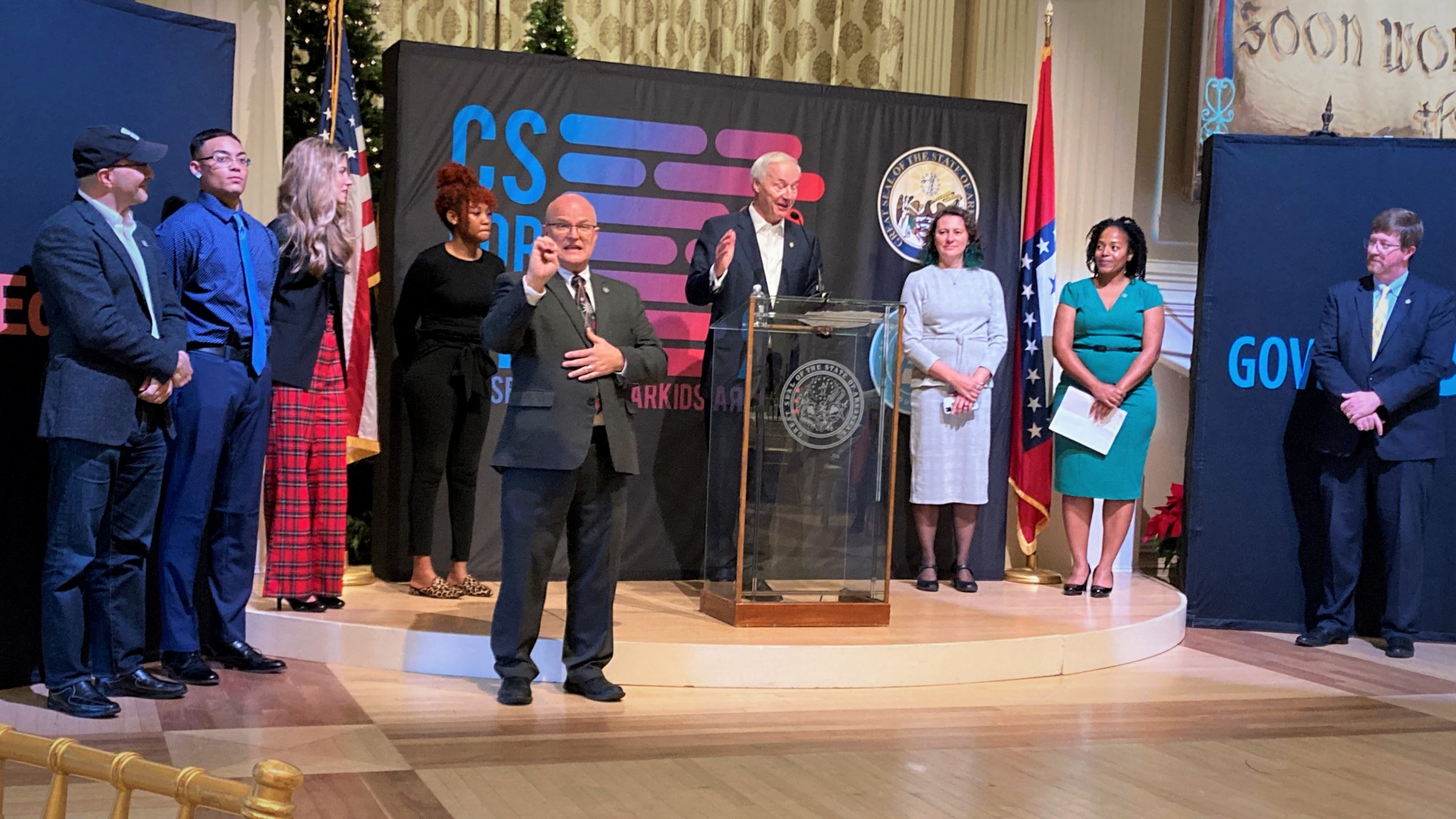Arkansas Governor and NGA Chairman Asa Hutchinson hosted the official national launch event for #CSEdWeek 2021 in Little Rock, Arkansas.
By Catherine Van Ness
On Friday, November 3, 2021, NGA Chairman Arkansas Governor Asa Hutchinson hosted the national kick-off event for Computer Science Education Week, which falls on December 6-12 this year. After being hosted in locales such as the White House, the New York Stock Exchange, and Silicon Valley, Governor Hutchinson was proud to host the launch in Little Rock, Arkansas. Known as #CSEdWeek, this annual event aims to raise awareness about computer science education and offers resources and events to public schools free of charge.
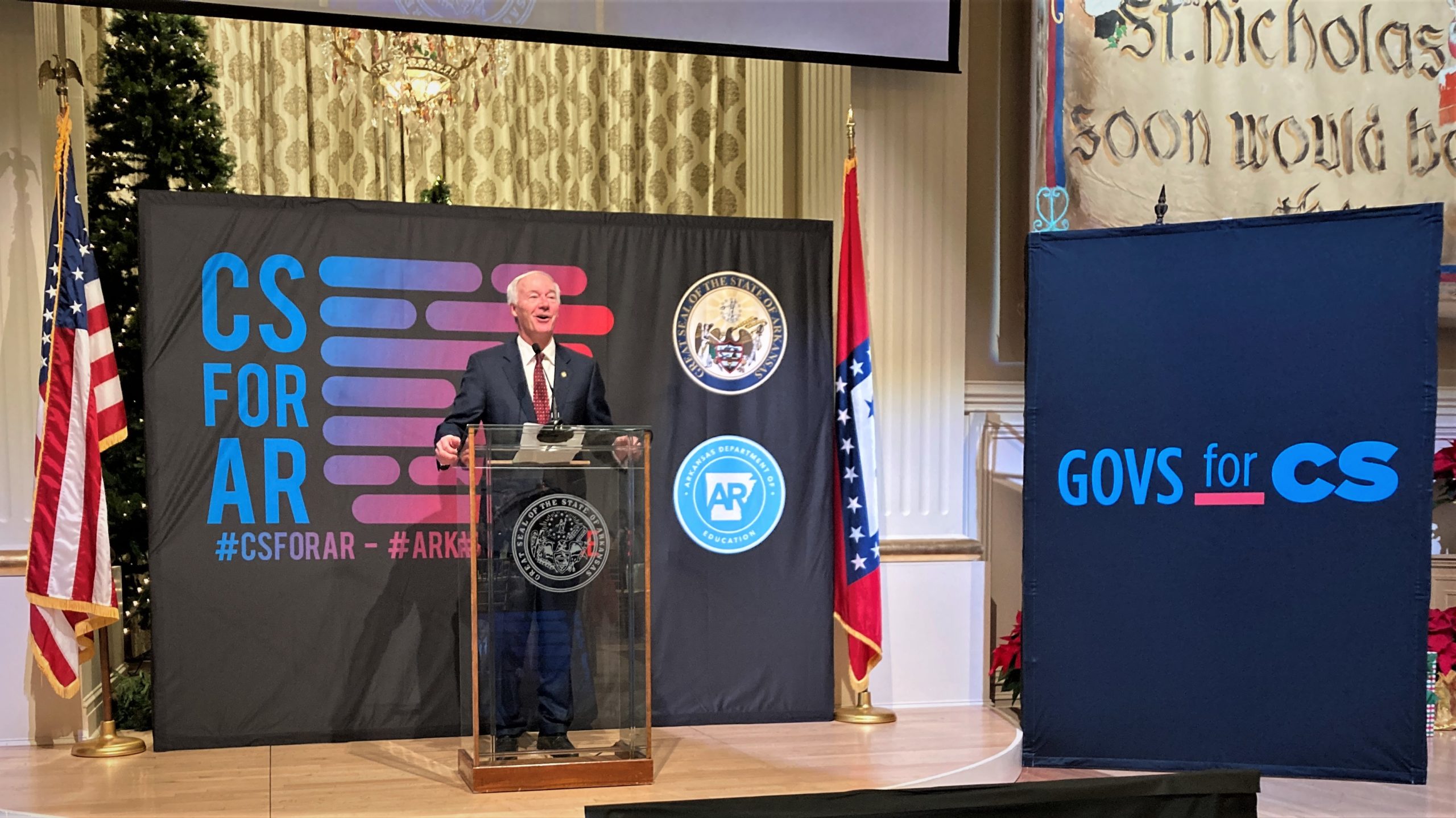
The launch event, sponsored by the Governors for Computer Science coalition, brought together national experts and state education leaders from 22 states and the District of Columbia and spotlighted local students and teachers. Similarly, this year Governor Hutchinson is garnering national support of K-12 computer science education as the focus of his NGA Chairman’s Initiative.
Gov. Hutchinson opened the CSEdWeek launch by welcoming attendees to the Governor’s mansion and sharing some of the building’s history. He shared his interest in computer science, which began during his time at the U.S. Department of Homeland Security and evolved into a tenet of his campaign for Governor of Arkansas. Governor Hutchinson shared details of the success that Arkansas has seen in growing annual computer science enrollment among high school students from about 1,000 students seven years ago to over 12,000 today. The Governor considers these efforts to be an important part of his legacy as these skills improve the lives of both students and teachers.
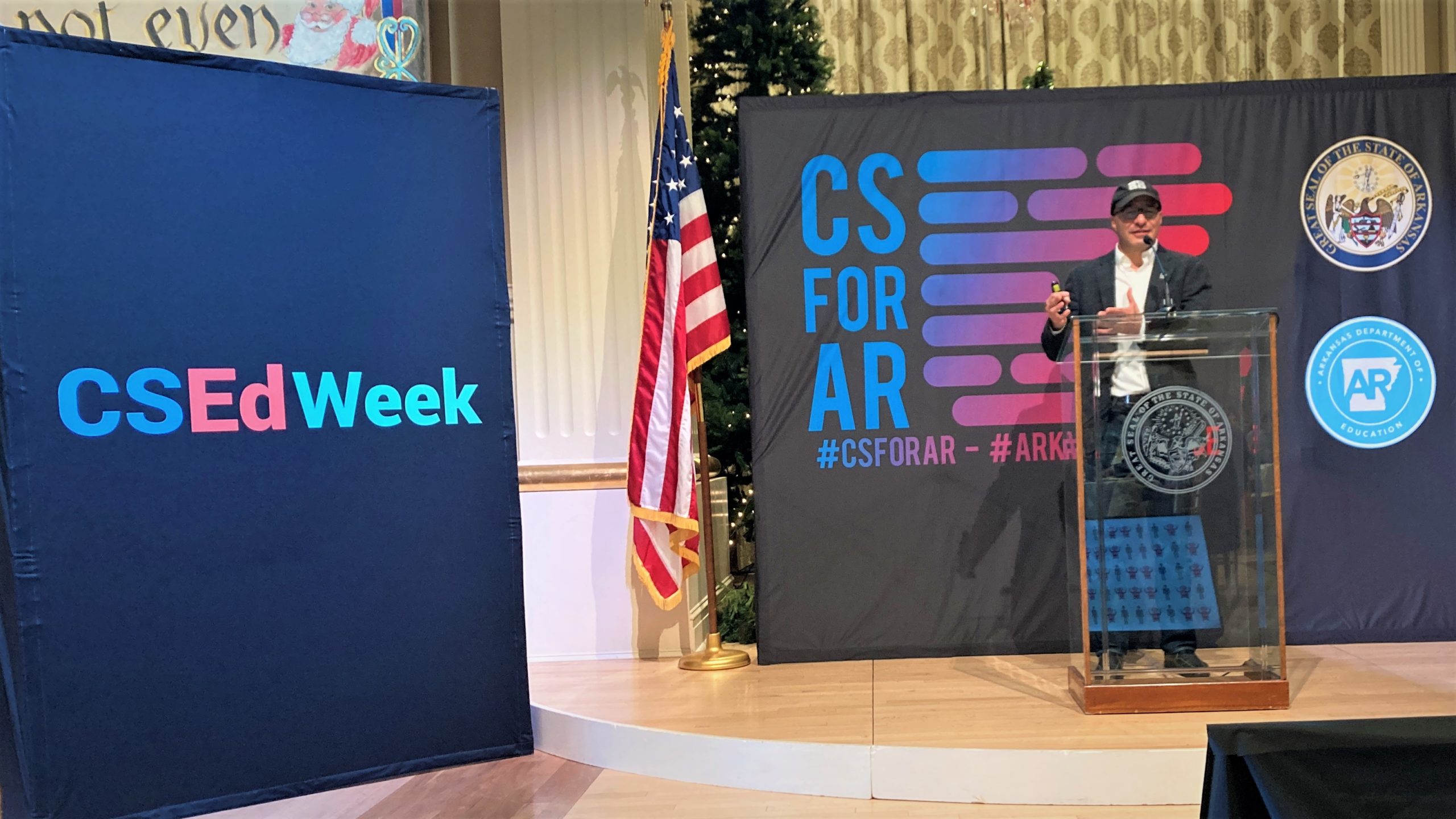
Hadi Partovi, CEO of Code.org offered his assessment of recent progress in computer science education and the need to leverage these classes for students across the United States. Hadi celebrated the increase in public high schools offering computer science courses to now represent a majority (51 percent) of U.S. high schools. However, he pointed to low enrollment numbers (4.7 percent) as an urgent national challenge. Currently, every state must import talent to meet demand in the computing field, which Governor Hutchinson described as a national security concern. Hadi argued that the nation is at an inflection point for computer science education as leaders aim to transition from pandemic-disrupted learning circumstances to a system that will leverage devices distributed to students, teachers’ higher comfortability with technology, and opportunities for remote work after graduation.
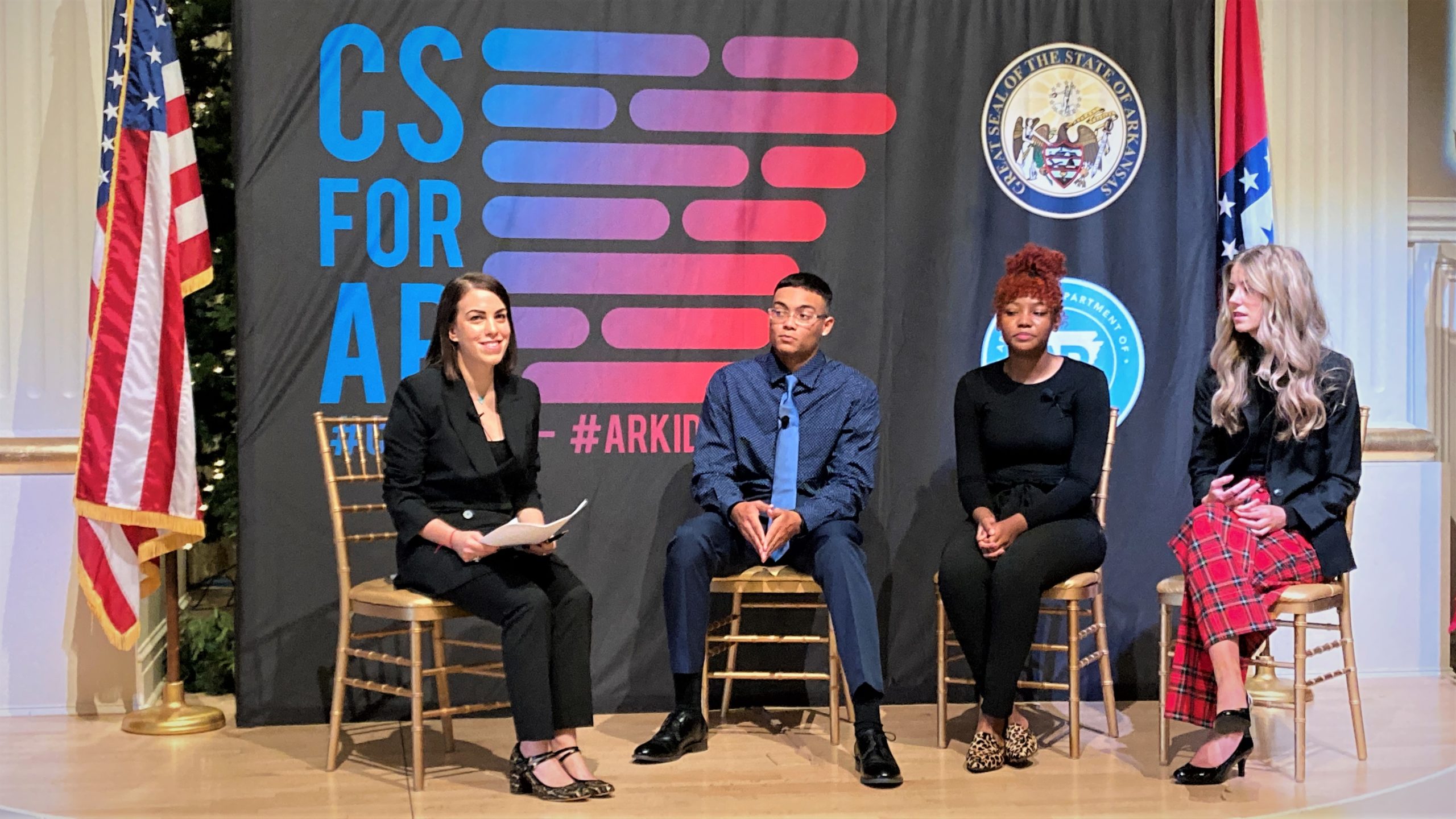
The first panel of the day featured three high school students from Arkansas who are all currently taking computer science courses. Two of the students identified problem-solving, including in collaboration with their classmates, and perseverance as the most important skills they have learned through their computer science classes and projects. When asked by Romy Drucker, K-12 Education Program Director at the Walton Family Foundation, about their interest in and motivation to take the computer science classes, they responded that financial incentives played a role. Those included the $1,000 offered to students who score a 5 on the AP exam and the higher earning potential for their future wages in the computing field.
The next panel included representatives from national organizations working to advance computer science education in the United States. They discussed the importance of seeing progress in new policy adoption while expanding implementation of existing policies to reach more schools. Multiple panelists stressed the importance of having a stable infrastructure of quality curriculum and certified teachers in place before expanding too quickly. Of course, funding was raised as a critical ingredient to success, which can come from garnering legislative support, and should also be flexible enough to respond to evolving realities in the field.
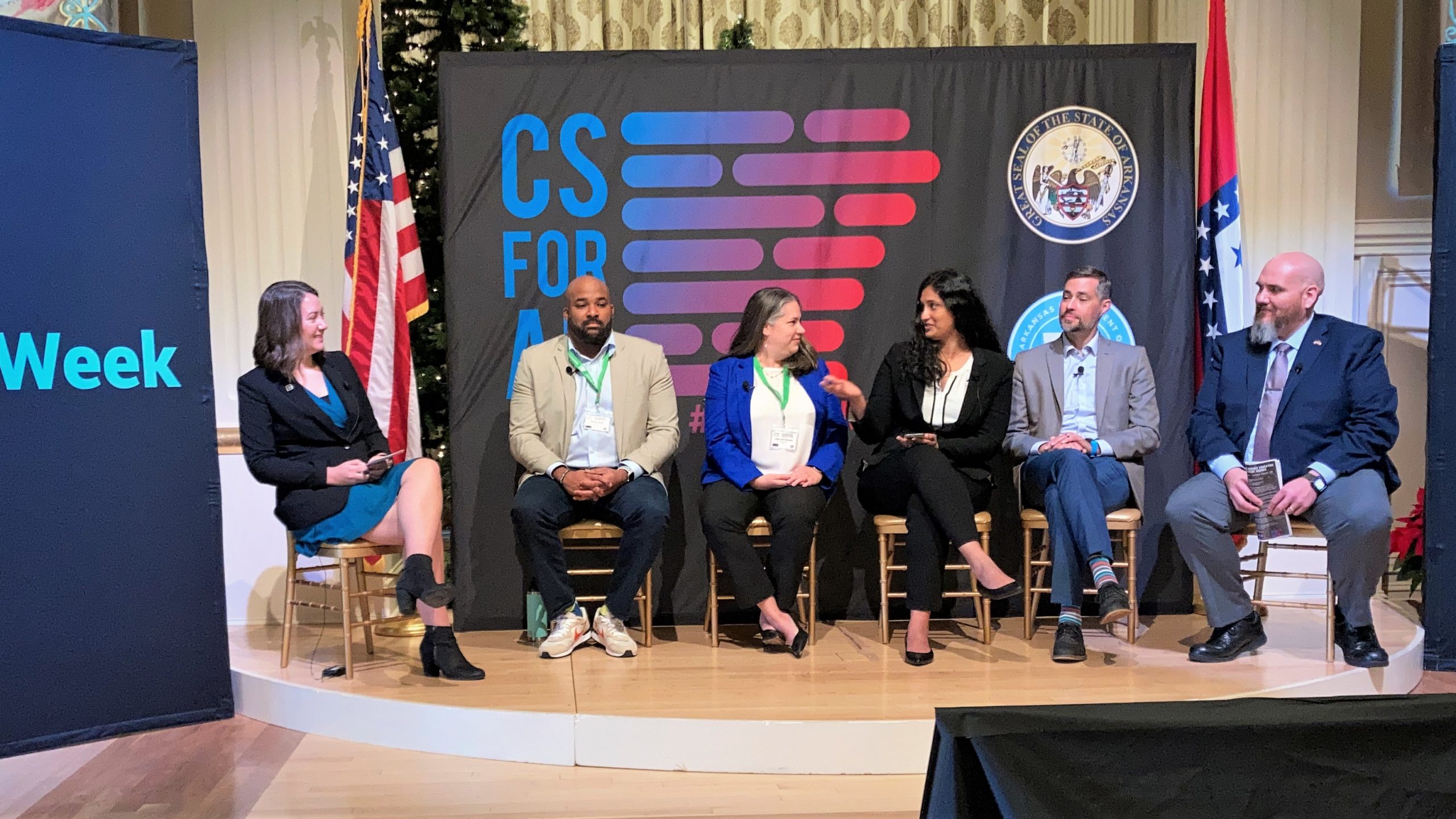
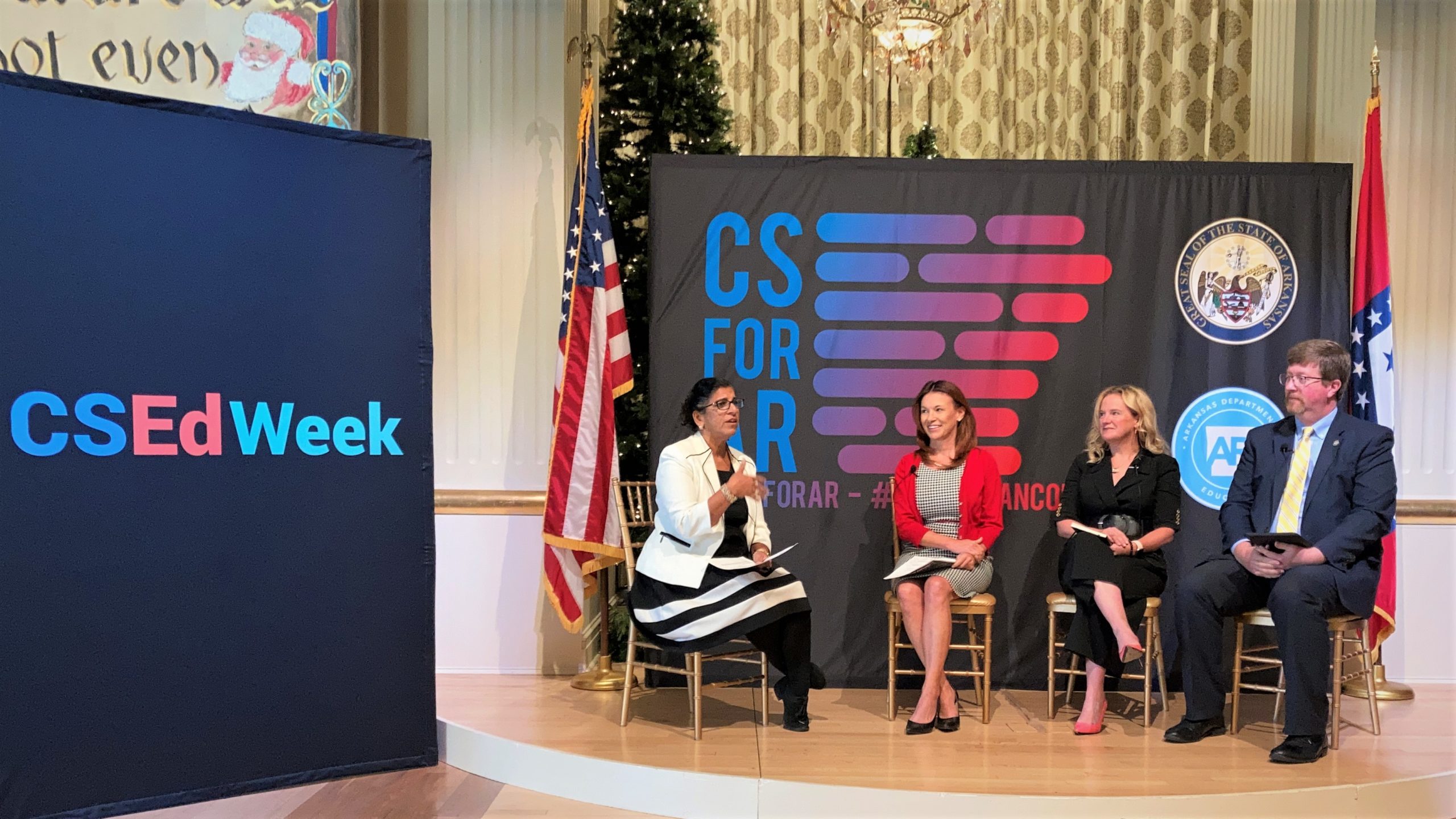
The day’s final panel featured three state education leaders who have all led initiatives to expand computer science education in their respective states. The panel’s moderator began by drawing inspiration from President John F. Kennedy’s famous quote about choosing to go to the moon and tackle other challenges, “not because they are easy, but because they are hard.” Superintendent Balow emphasized the importance of partnerships, with business and industry in the state and with students and families as the customers of the education system. Superintendent Baesler urged the integration of computer science with other subjects taught in earlier grades and differentiated between computer science taught at the elementary, middle, and high school levels, describing North Dakota’s three-tiered teacher certification in computer science education. Secretary Key celebrated the fact that Arkansas and North Dakota have integrated cybersecurity into their computer science education and predicted that more states would follow suit as they recognize the need to prepare future generations in that growing sector.
To cap off a day of engaging conversations, Governor Hutchinson led the official press conference that launched #CSEdWeek. NGA looks forward to future opportunities to highlight Governor Hutchinson’s NGA Chairman’s Initiative and will continue to support Governors and their staff as they seek to expand K-12 computer science education in their states.
